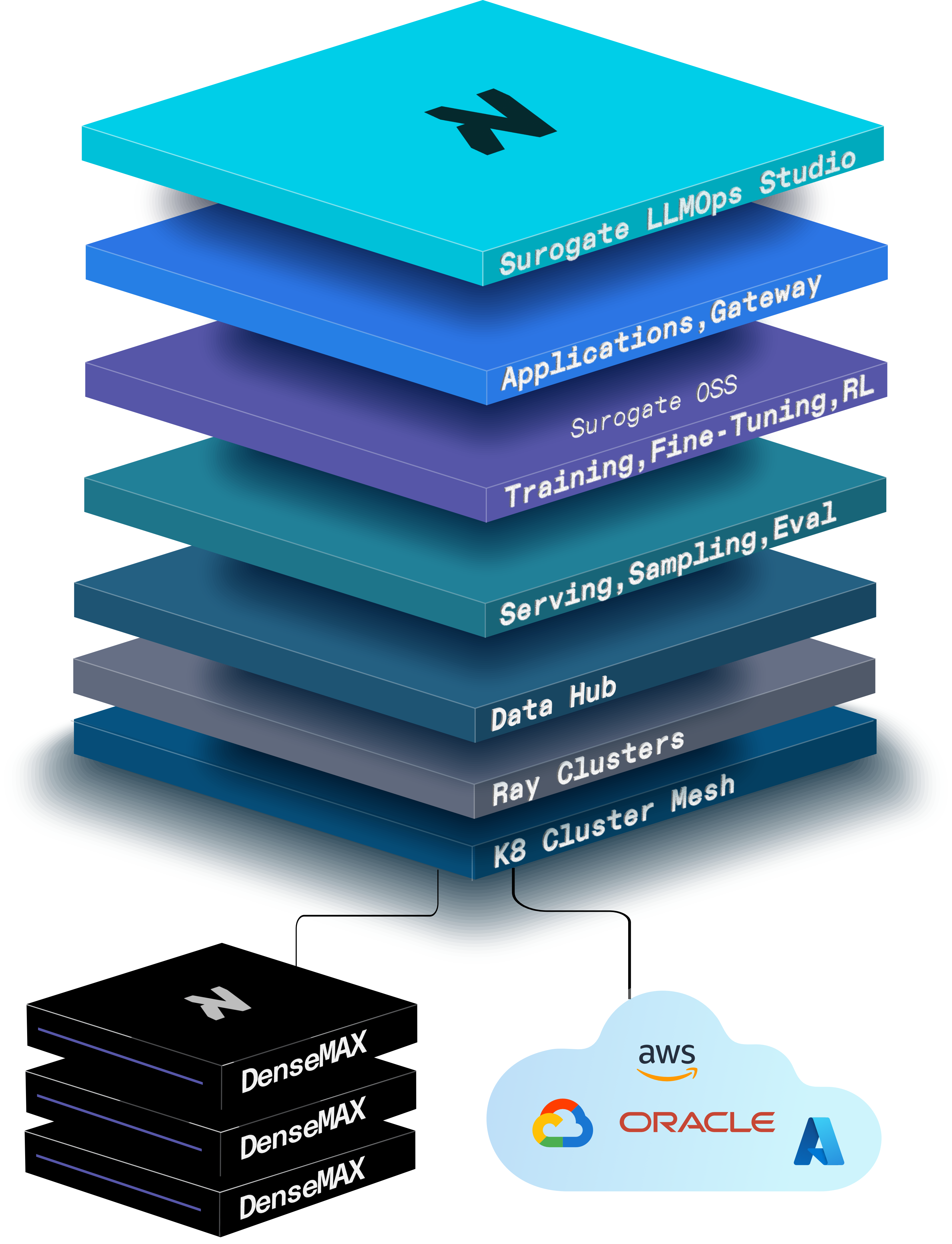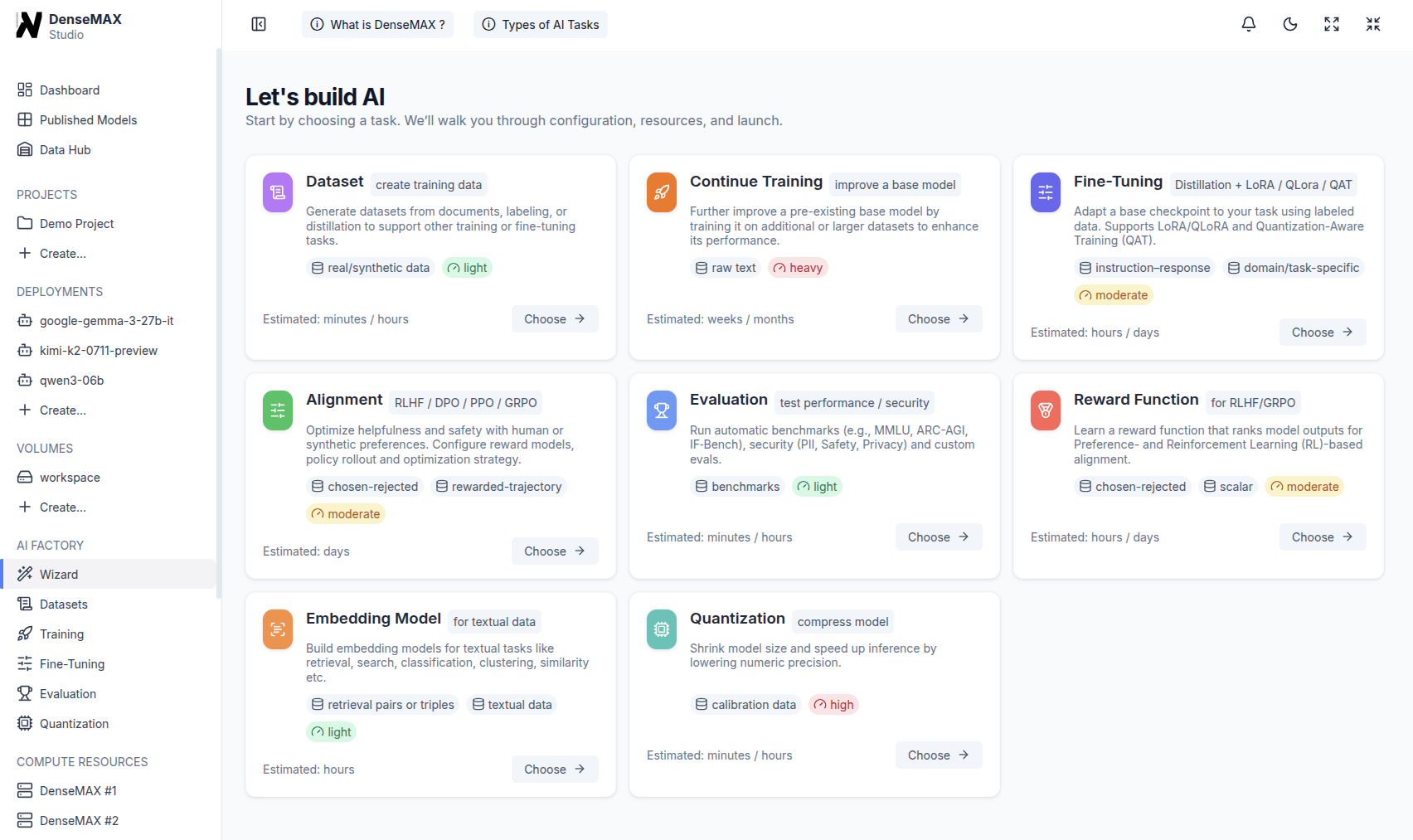Surogate LLMOps Enterprise
Surogate OSS
Surogate Enterprise
Pretraining; full fine-tuning; LoRA / QLoRA
BF16, FP8, NVFP4, BnB; mixed-precision training
Multi-GPU; Multi-node (Ray-based)
Native C++/CUDA engine; kernel fusions; multi-threaded scheduler
Deterministic configs + predefined recipes
DDP efficiency (comm/compute overlap)
Optimizer options (e.g., 8-bit AdamW)
Dense + MoE model support
GUI workflows; no-code pretraining & fine-tuning; predefined recipes
Reinforcement fine-tuning; alignment: DPO / PPO / GRPO / GDP
Chinchilla scaling rules for pretraining
Data Hub with Git-like versioning
Advanced model serving (KV-aware cache routing, GPU sharding, replicas, disaggregated serving)
Model gateway (usage tracking & security)
Evaluation suite + red-teaming(bias/toxicity/leakage, etc.)
Synthetic data generation; embeddings training; reward function tooling
Workload/container isolation
Deploy on DenseMAX Appliance + public clouds
Adaptive Training (online hyperparameter adjustment to prevent drift/collapse)
Role-based access control (RBAC)
SOC2 compliance commitment
Dedicated CSM; SLAs / guaranteed support response times
Org-grade governance (promotion/approvals, stricter policy enforcement)
Multi-tenant controls / isolation for departments
Air-gapped + hardened deployment patterns
High availability (HA) options for serving + control plane
Backup/restore + disaster recovery (DR) procedures
Security hardening: encryption at rest + customer-managed keys (KMS/HSM)
Secrets management integration (Vault/KMS)
Supply-chain security: vulnerability scanning + SBOMs for images/artifacts
Lineage tracking across data → run → artifact → deployment







